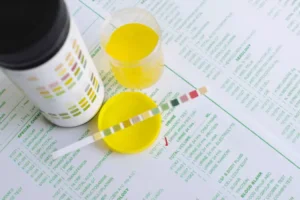
In contrast, an alcohol allergy could become life threatening. If people experience symptoms after drinking alcohol, they should speak with a doctor for further advice. An alcohol allergy is a rare toxic reaction to alcohol that can be fatal in rare cases. Often, what people consider to be an alcohol can you be allergic to whiskey allergy is, in fact, alcohol intolerance. An alcohol allergy is when your body reacts to alcohol as if it’s a harmful intruder and makes antibodies that try to fight it off. A true allergic reaction happens when your immune system goes into overdrive to attack something it sees as a threat.
- Allergy symptoms are often more painful and uncomfortable than alcohol intolerance symptoms.
- If you have alcohol intolerance, your digestive system doesn’t process alcohol properly.
- The doctor may refer the person to an allergy specialist for further testing and treatment.
- People with alcohol intolerance could still consume alcohol, although they will likely experience side effects.
- The frustration of dealing with a dry cough that lasts longer than three weeks may affect your quality of life and psychological well-being.
Why do people develop an alcohol intolerance?
If you have other allergies, you are more likely to have an allergy to alcohol, according to research from Switzerland. If you have a reaction to an alcoholic drink, you may have one of two things—a true allergy or an alcohol intolerance. While both are reactions to alcohol and can sometimes cause similar symptoms, they are different issues. Unfortunately, nothing can prevent reactions to alcohol or ingredients in alcoholic beverages. To avoid a reaction, avoid alcohol or the particular substance that causes your reaction. Having a mild intolerance to alcohol or something else in alcoholic beverages might not require a trip to a doctor.
Symptoms of an Alcohol Allergy
Dr. Adam Richmond, a regional medical director with The Recovery Village told Newsweek that there is a common misconception between an alcohol allergy and alcohol intolerance. While it’s easy to get confused between the two, they’re actually very different conditions. People with alcohol intolerance react quickly to consuming alcohol. Two common symptoms are facial flushing, in which the skin on the face quickly turns red, and nasal congestion. If you drink a beverage that causes a mild reaction, over-the-counter antihistamines might help relieve symptoms.
Milder reactions to alcohol may also occur
Sulfites are one of 14 allergens that must be listed in bold in all prepared foods and restaurants. It won’t go away, but by taking some precautions, you can avoid the symptoms and enjoy a healthy, active life. However, some people with Hodgkin lymphoma experience pain in their lymph nodes after consuming alcohol. An alcohol allergy can occur when a person with an alcohol allergy comes into contact with alcohol, which is also known as ethanol.
- Genuine alcohol allergies, in which people only react to the alcohol, are much less frequent.
- Another type of allergen, lipid transfer protein (LTP), is found in fruits, vegetables, nuts, seeds and cereals, and can also be present in some alcoholic drinks.
- This is all happens as a result of drinking alcohol, or more specifically, the series of bodily processes it sets in motion.
Although red wine is especially high in histamines, all alcoholic beverages have high levels of histamine. The term “alcohol intolerance” becomes key in deciphering these reactions. Your healthcare provider will ask you about the symptoms and reactions that occur after you drink alcohol. No, alcohol intolerance is not the same as being intoxicated or drunk. Alcohol intolerance doesn’t mean you become drunk faster or after drinking less alcohol. And the condition does not increase your blood alcohol level, either.

If symptoms are getting worse, you have swelling, or you have breathing trouble, go to an ER. Follow your allergy action plan if you have one, which may include using an EpiPen. You may be more likely to have reactions https://ecosoberhouse.com/article/stages-of-alcohol-intoxication-alcohol-toxicity-treatment/ to alcohol if you have any of these factors. Alcohol is toxic and must be converted by the body into non-toxic substances. This takes time, which is why the symptoms can last for a whole day or more.
Avoiding alcohol is the only sure way to prevent an alcohol-related reaction. Alcohol-induced respiratory symptoms are common in patients with aspirin exacerbated respiratory disease. But there aren’t any tests for sulfite or histamine sensitivity.
If the allergic reaction is more severe, people may require epinephrine, also known as an EpiPen. A person with severe allergies should carry one with them at all times, in case of a serious allergic reaction. Depending on the allergy severity, a person may treat symptoms with over-the-counter medications, such as oral antihistamines, if the reaction is mild.


